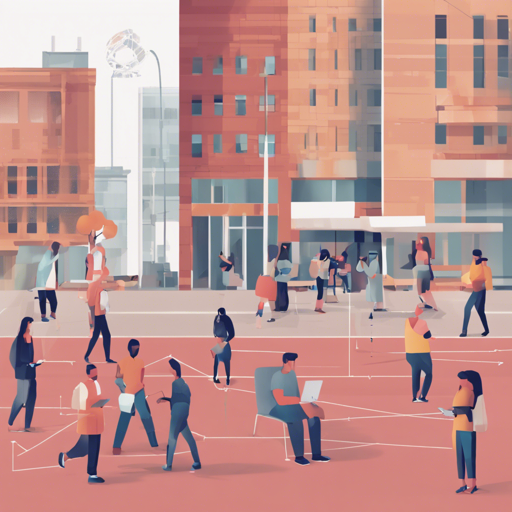In times of global health concerns, maintaining safe interpersonal distances is crucial. The Social-Distancing project offers an open-source solution designed to automatically estimate distances between individuals using uncalibrated RGB cameras. This article will guide you through the installation, usage, and troubleshooting of this remarkable software.
What You Will Learn
- Installation Requirements
- How to Use the Software
- Troubleshooting Tips
Installation Requirements
Before diving into the world of social distancing measurement, ensure your environment is set up for success. You’ll need:
- Operating System: Ubuntu 20.04
- Python Version: Python 3
- Hardware: NVidia drivers along with Cuda 10.1 and Cudnn 7.6.5
Now, let’s gather the necessary tools:
- OpenPose 1.6.0: Install following the instructions from the OpenPose GitHub repository.
- OpenCV: Run
apt-get install python3-opencvandpip3 install opencv-python. - PyTurboJPEG: Install with
pip3 install PyTurboJPEG. - Shapely: Obtain by running
pip3 install Shapely. - Itertools: Get it via
pip3 install itertools. - Numpy: Install it by using
pip3 install numpy.
How to Use the Software
Once everything is installed, you’re ready to assess interpersonal distances. Using the Social-Distancing software is as easy as pie. Think of the process as preparing for a theatrical play—but instead of actors, we have individuals in images or videos. Here’s how the performance unfolds:
- Image Processing:
python3 process_source.py --image_in [path to the input image] --image_out [path to the result image to be saved] --background_in [path to the background] --horizontal_ratio 0.7 --vertical_ratio 0.7 - Video Streaming:
python3 process_source.py --video enabled --stream_in [path to the input video] --stream_out [path to the result video] --horizontal_ratio 0.7 --vertical_ratio 0.7 - Network Stream:
python3 process_source.py --preview disabled --streaming enabled --video_port [port] --js_port [js_port] --stream_in [address]
Troubleshooting Tips
Like any performance, things may not go as planned. Here are some troubleshooting ideas:
- If you encounter issues regarding OpenPose installation, double-check your paths using the –openpose_folder argument.
- Ensure all required Python packages are correctly installed. If you run into “Module Not Found” errors, try reinstalling the respective package.
- Make sure your video or image input paths are correct. Any typos might lead to failure in processing.
For more insights, updates, or to collaborate on AI development projects, stay connected with fxis.ai.
Final Thoughts
By following these steps, you can contribute to maintaining safe distances in public spaces during uncertain times. Remember, the algorithms used here fundamentally rely on visual estimations, so please consider it as a supportive tool, not as an absolute measure.
At fxis.ai, we believe that such advancements are crucial for the future of AI, as they enable more comprehensive and effective solutions. Our team is continually exploring new methodologies to push the envelope in artificial intelligence, ensuring that our clients benefit from the latest technological innovations.

